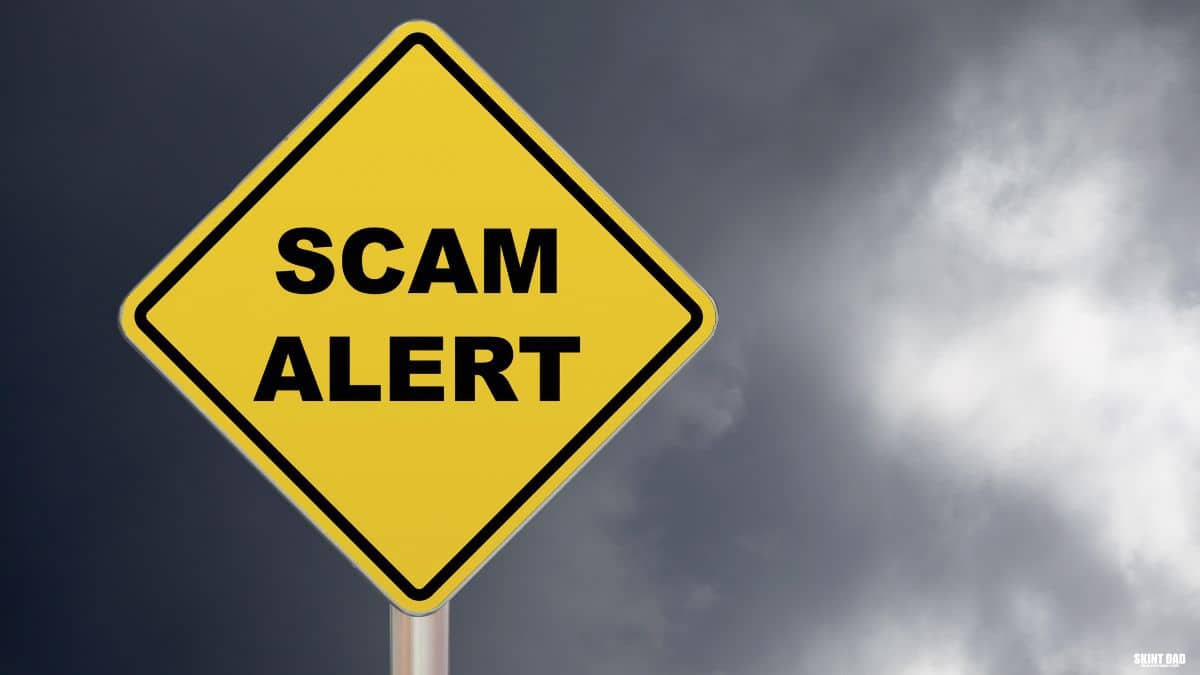More than 170,000 tax-related scams were reported to HMRC in the past year, with nearly 50,000 targeting self-assessment customers.

Scammers are becoming more sophisticated, often impersonating HMRC to trick you into revealing personal details or handing over your money.
With the 31 January 2026 tax return deadline coming up, HMRC has issued a warning to help people spot fraudulent messages and avoid falling victim.
Get a free £10 bonus with Swagbucks
Earn a bit of extra money in your spare time with surveys, videos, and simple tasks you can do at home.
New users can get a £10 bonus when they sign up.
Get the £10 bonus
How HMRC tax rebate scams work
Most scams involve fake tax refund offers sent via email or text message. The message claims you’re owed a tax rebate and includes a link to a website that looks genuine but is designed to steal your personal details.
Information like your name, address, passwords, and bank details can be used by criminals to access your accounts or even commit identity fraud.
HMRC says more than a third of phishing reports last year involved bogus tax rebate claims.
How to avoid HMRC tax scams
HMRC has shared several tips to help taxpayers avoid falling for these scams:
- File your tax return early
Submitting your return ahead of the deadline makes it easier to spot suspicious messages. Last-minute filers are more likely to panic and fall for urgent or official-looking scams. - Use the official HMRC app
The free app is a secure way to manage your tax account, check your refund status, and avoid clicking on dodgy links. It uses secure login features like PINs and facial recognition, making it harder for scammers to access your details.
Four things HMRC will never do
HMRC has confirmed there are certain things it will never ask for or send:
- Offer tax rebates by email, text, or phone call
- Leave voicemails threatening arrest or legal action (I’ve had one of these – you can hear what it sounds like here)
- Demand urgent payments using gift cards, cryptocurrency, or other unusual methods
- Ask for personal or financial details like passwords or bank account numbers via email, text, or over the phone
If you receive any message claiming to be from HMRC that does any of the above, it’s almost certainly a scam.
How to check if a message is genuine
HMRC does send emails, texts, and letters, but there are ways to confirm if they’re real:
- Genuine emails have specific subject lines about your account, never vague promises of rebates
- Any links will go directly to an official GOV.UK page — always check the full URL before clicking
- HMRC may use QR codes in letters, but these only lead to guidance pages and never request personal details
What to do if you get a suspicious message
If you receive a text, email, or phone call claiming to be from HMRC and you’re not sure if it’s genuine, do not click on links or provide any details.
You can forward suspicious emails to phishing@hmrc.gov.uk and forward scam texts to 60599.
Saved a few quid with our tips?
If Skint Dad has helped you spend less or feel more in control of your money, you can support the site with a small contribution.
- Side hustles and benefits in the UK: what you need to know - 8 January 2026
- Lloyds Bank switch deal: grab £250 plus Disney Plus for free - 6 January 2026
- Thinking of doing the Co-op freezer deal? Read this first - 6 January 2026
